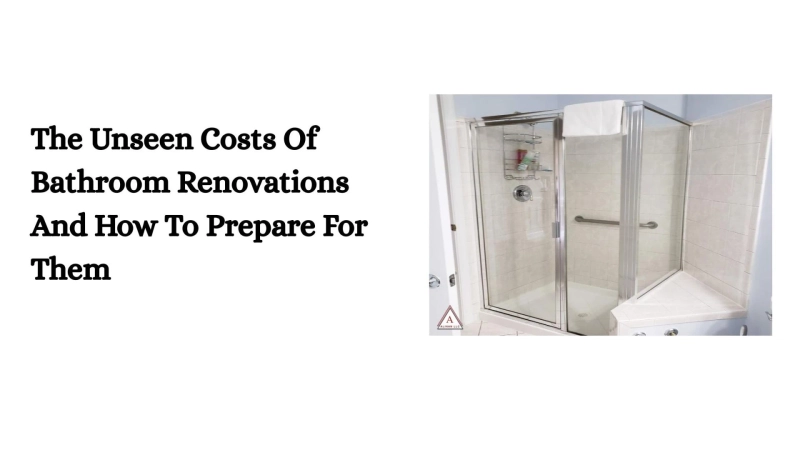Bathroom renovations are exciting. You’re finally getting rid of that dated tile, upgrading to a sleek vanity, and maybe adding a rain shower. But before you swing that sledgehammer, it’s worth understanding the costs that don’t show up on the surface. The truth is, bathroom remodels can come with a few surprises—and they’re often the ones you didn’t plan for.
Let’s dig into the hidden expenses of bathroom remodeling and how you can stay a step ahead.
Structural Surprises Behind the Walls
You pull off the old tiles and—bam—you’re staring at water damage or rotted studs. Unfortunately, this is pretty common, especially in older homes. Moisture finds its way behind walls and under floors over time, often going unnoticed until the renovation begins.
Fixing these issues is non-negotiable. You’ll need to replace any compromised wood, repair subfloors, or even add mold remediation if things have gotten out of hand. These fixes can quickly add hundreds or even thousands to your project.
Plumbing Updates You Didn’t Expect
Even if you're not moving fixtures around, you might still run into plumbing costs. Corroded pipes, outdated materials, or improper past installations could all cause headaches. In some cases, local codes might require updates before any new fixtures go in.
For anyone considering bathroom remodeling in Bethesda, MD, it’s smart to set aside extra funds for plumbing surprises. A licensed plumber may need to step in to ensure everything meets current standards.
Electrical Work That Adds Up
You want a new vanity light, maybe a heated floor, or even a built-in Bluetooth speaker. But is your current wiring up to code? Older bathrooms might not have the necessary circuits or outlets for today’s tech. Adding GFCI protection or increasing electrical capacity may be required—and it’s not always cheap.
Electrical changes also need permits and inspections in most areas, which adds both time and cost.
Permit Fees and Local Regulations
Speaking of permits, don’t forget about them. Depending on your location and the scope of work, you may need permits for plumbing, electrical, or structural changes. Failing to pull the right permits can delay your project or even cause fines later on.
Bethesda has strict building codes in place to ensure safety and quality. So if you’re starting a bathroom remodeling in Bethesda, MD, be sure your contractor includes permit fees and inspection scheduling in their estimate.
Material Price Swings
Prices on tile, fixtures, and vanities can change overnight. If you’ve been browsing for months and finally decide to buy, the price might’ve gone up—or the item might be backordered. Add in shipping fees or restocking charges, and your budget can take a hit.
Choosing materials early, and locking in prices when you can, is one way to avoid surprises. Have a few backup options too, just in case your first pick becomes unavailable.
Labor Overruns
Even the best contractors can run into delays. Maybe the tile delivery was late, or the subcontractor had an emergency. Unexpected pauses in the schedule mean extra days on the clock. And for hourly labor, that adds up fast.
Having a clear project timeline—and choosing a contractor with a reputation for staying on schedule—can help reduce these kinds of costs.
Living Expenses During Construction
If your bathroom is out of commission for days or even weeks, you’ll need a backup plan. That might mean staying with family, using a portable restroom, or relying on another bathroom in the house. If your only full bath is under construction, this can be a bigger issue than expected.
A little planning here goes a long way. Set realistic expectations for your living arrangements and build that into your timeline.
Plan Smart, Spend Wisely
Bathroom renovations are worth the effort—but only if you're prepared. Many homeowners focus on surface-level choices like tile and faucets. But it’s the hidden details behind the walls and under the floors that can stretch your budget.
For anyone moving forward with bathroom remodeling in Bethesda, MD, building a cushion into your budget—about 15–20% extra—is a smart move. That way, you’re not scrambling if something unexpected pops up.



